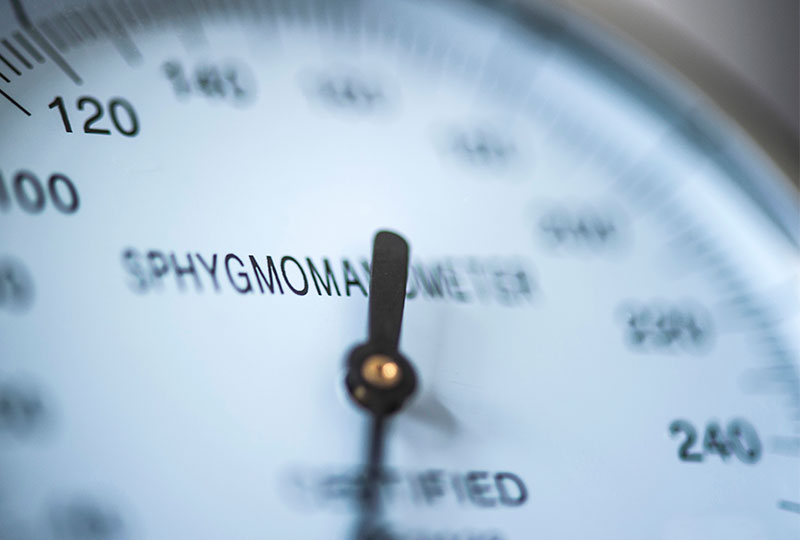Our quiz tests your BP savvy.
May is National High Blood Pressure Education Month. Do you know your blood pressure numbers?
If not, you need to get checked. A reading of 119/79 or lower is normal blood pressure. A reading of 140/90 or higher is high blood pressure, also known as hypertension, according to the U.S. National Library of Medicine.
Blood pressure refers to the force of your blood pushing against the walls of your arteries. Each heartbeat increases this force. In between beats, when your heart is resting, the pressure lessens. The two numbers of a blood pressure reading reflect your heartbeat. The first or top number refers to systolic pressure, the force created by the heartbeat. The second or bottom number is the diastolic pressure, how much force is pressed against arterial walls when the heart is between beats.
Ask yourself these questions to learn about the risks of high blood pressure:
1. According to the U.S. Centers for Disease Control and Prevention, about how many adults in the United States have high blood pressure?
A. 1 out of 3
B. 1 out of 5
C. 1 out of 7
Answer: A.
About 70 million people in the United States have high blood pressure.
2. True or false? If you have high blood pressure, you will know it based on uncomfortable symptoms.
Answer: False.
“High blood pressure is often called the ‘silent killer’ because many times there are no warning signs or symptoms,” says Sharmin Basher M.D., M.S., at Vanderbilt University Medical Center’s Heart & Vascular Institute. Basher recommends getting your blood pressure checked annually after the age of 40.
3. Which of the following are the major risk factors for high blood pressure?
A. Age, race and a family history of hypertension
B. Smoking tobacco, drinking too much alcohol and not managing stress
C. Being overweight, living a sedentary lifestyle and eating too much sodium
D. All of the above
Answer: D
All of these are risk factors. “In stressful conditions, our bodies produce hormones that can temporarily narrow our arteries and cause our hearts to beat faster,” Basher explains. And although scientific data does not link stress alone to hypertension, the behaviors associated with stress, like drinking too much or eating poorly, are linked to high blood pressure. Regarding race, African-Americans are more at risk for high blood pressure than Caucasians, Basher says. Diseases of the kidney and adrenal glands or thyroid disorders can also increase the risk for hypertension.
4. True or false? High blood pressure increases your risk of two of the leading causes of death in the United States.
Answer: True.
High blood pressure increases your risk of heart disease as well as stroke, the first and third leading causes of death in the United States, respectively. Uncontrolled high blood pressure can also cause heart failure, kidney disease and vision problems, Basher adds.

Worried about your blood pressure? Talk to your doctor about healthy levels and what you can do to improve your heart health.

